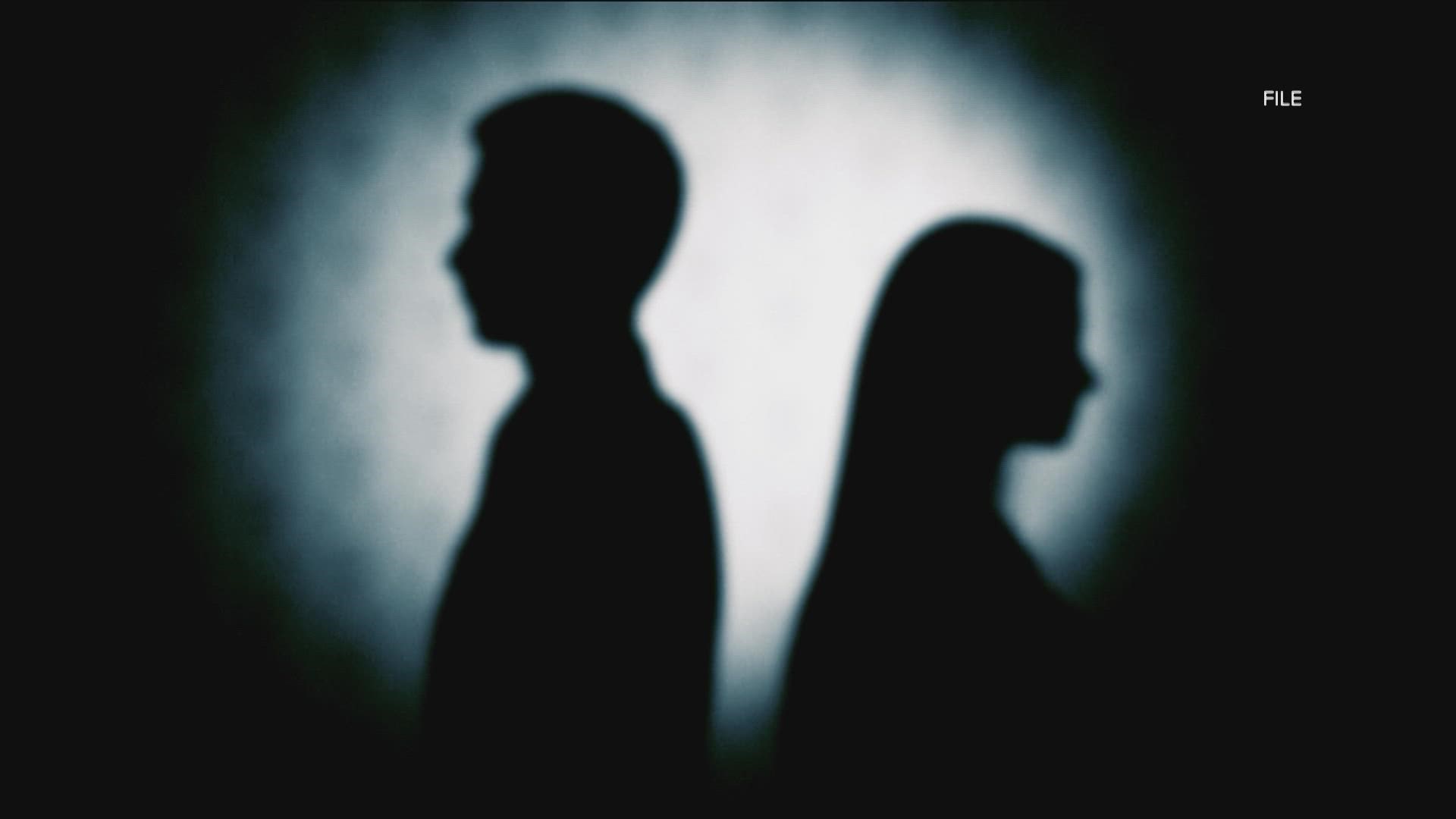AUSTIN, Texas — When most of us think about the holidays and the end of the year, hopefully our heads are filled with pleasant images. But it’s an unfortunate fact that for many people in the U.S. and around the world, it’s completely the opposite. This time, for some, is a time of fear and dread, due to the marked increase in domestic abuse cases around this period.
The National Coalition Against Domestic Violence (NCADV) states that, on average, nearly 20 people per minute are physically abused by an intimate partner in the U.S. During one year, this equates to more than 10 million women and men.
According to Hope Alliance in Round Rock, 33% of women have been abused by a romantic partner; 81% of adolescents are victims of physical, sexual, emotional or verbal abuse from a dating partner; and 33% of homeless women with children have experienced domestic violence.
Jimmie Gable, a counselor with Home Alliance, said people come in at a slower rate for counseling during the holidays, but come January and February, things begin to pick up. She said this is because reports of abuse over the holiday season aren't typically reported until later.
”They often aren’t seeking help during that time. They’ve got too much going on. They’ve got family in. They’re not going to be out seeking help," Gable said. "So they’re really just, you know, putting on that happy face to get through it.”
Gable said domestic abuse increases over the holidays, for a number of possible reasons:
- Stress from holiday shopping, finances and planning can aggravate volatile personalities.
- Abusers are more likely to drink alcohol or use drugs when they don’t have to work.
- Abuser are more likely to be home alone with their victims than at other times of the year.
"There is data that shows, one of the most dangerous, if you will, days of the year is New Year's Day," Gable said. "Domestic violence is said to rise 2.7 times on New Year's Day as opposed to just a normal regular day, so you’re probably looking at alcohol being a factor in that.”
Gable added that there are several different kinds of abuse: domestic, sexual, emotional and even financial. She said if you suspect someone you know may be in an abusive situation or feel a shift in your own relationship, there are signs you can look for.
Physical signs:
- Bruises or cuts that are worse than their explanations.
- Wearing inappropriate or unusual clothing to cover up (turtlenecks, sunglasses indoors, long skirts or pants when they usually wear shorter clothing).
Emotional signs:
- Being unusually quiet, withdrawn or fearful.
- Anxiety or apprehension, especially when away from the abuser.
- Depression or discussion of suicidal thoughts.
- Developing of a drug or alcohol problem.
Changes in activity:
- Being late or canceling at the last minute more often than is usual.
- Avoiding parties or other activities they used to enjoy, especially with friends and family.
- Lack of money or access to resources because partner has control of it.
Gable added that it is important to always approach anyone who you think may be in an abusive situation with compassion and empathy.
"If you do start feeling that you don’t have your freedoms, you are being berated, you’re just not being treated the way that you should – yeah, reach out. Reach out to Hope Alliance," Gable said.

